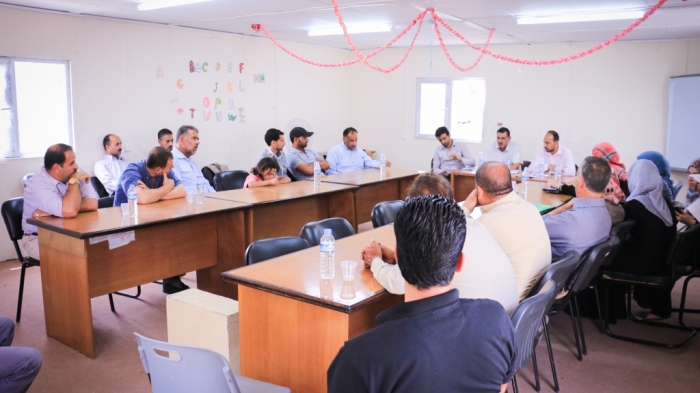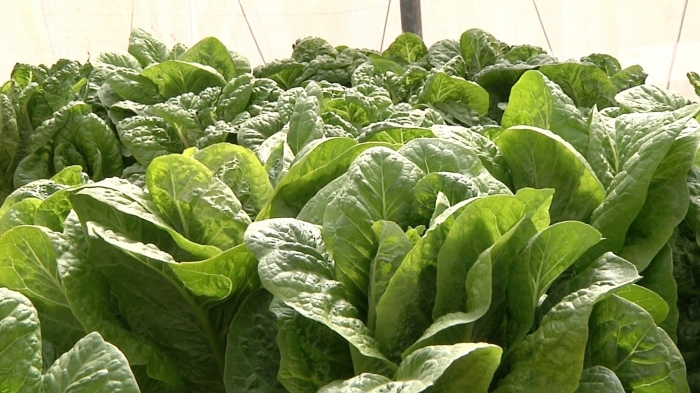Wastewater treatment
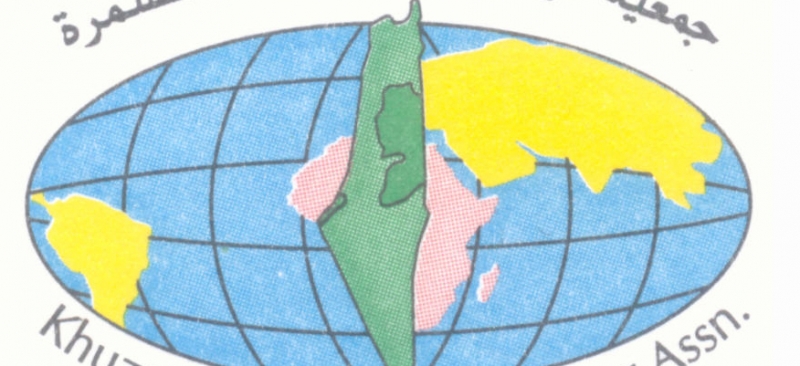
Other programs
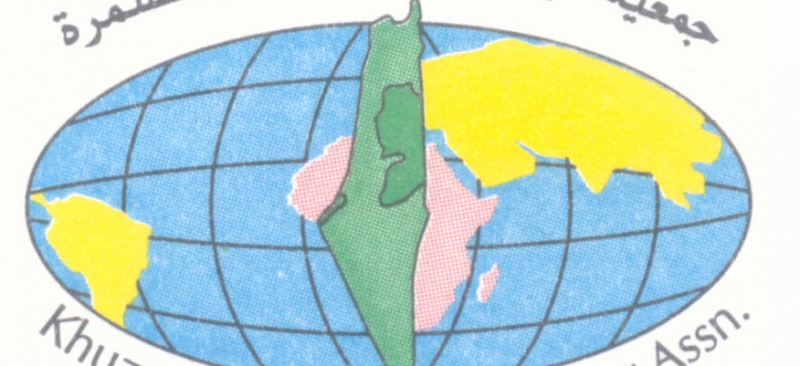
Mulching
In agriculture and gardening, mulch is a protective cover placed over the soil, primarily to modify the effects of the local climate. A wide variety of natural and synthetic materials are used. The main purpose of mulch is to hold moisture, retard weeds, maintain even soil temperatures and provide a decorative appearance and exceeding product expectations, Mulch is used for various purposes: •to adjust soil temperature by helping soil retain more heat in spring and fall, and by keeping soil cool and evening out temperature swings during hot and variable summer conditions •to control weeds by blocking the sunlight necessary for germination •to retain water by slowing evaporation •to add organic matter and nutrients to the soil through the gradual breakdown of the mulch material •to repel insects •to incrementally improve growing conditions by reflecting sunlight upwards to the plants, and by providing a clean, dry surface for ground-lying fruit such as squash and melons. •for erosion control - protects soil from rain and preserves moisture •for sediment control - slows runoff velocity A variety of materials are used as mulch: •organic residues - grass clippings, leaves, hay, straw, shredded bark, whole bark nuggets, sawdust, shells, wood chips, shredded newspaper, cardboard, wool, etc. Many of these materials also act as a direct composting system, such as the mulched clippings of a mulching lawn mower. There are many differing opinions on what to use. •Compost - This relies on fully composted material, where potential weed seed has been eliminated, or else the mulch will actually produce weed cover. •Rubber mulch - Environmentally safe & secure; made from 100% recycled rubber. •Plastic mulch - Crops grow through slits or holes in thin plastic sheeting. This method is predominant in large-scale vegetable growing, with millions of acres cultivated under plastic mulch worldwide each year (disposal of plastic mulch is cited as an environmental problem). •Organic sheet mulch - Various products developed as a biodegradable alternative to plastic mulch. •Rock and gravel can also be used a mulch. In northern climates the heat retained by rocks will extend the growing season. The way particular organic mulch decomposes, and reacts to wetting by rain and dew; determine in great degree its effectiveness. Organic mulches can rot rapidly rather than slowly break down, and it can mat into a barrier that blocks water and air, both conditions that can be detrimental to crops. Living mulch may also be considered a type of mulch, or as a mulch-like cover crop. This technique involves under sowing a main crop with a fast-growing cover crop that will provide weed suppression and other benefits associated with mulch. Mulching is an important part of any no-dig gardening regime, such as practiced within permaculture systems.
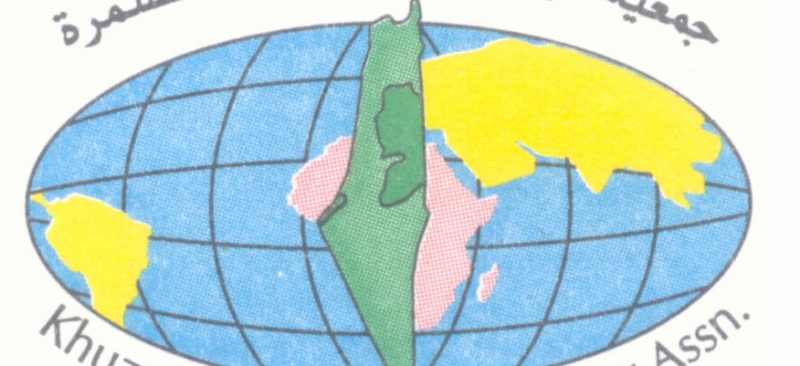
Rainwater collection
Collect water in its most natural state - rain. Rainwater Collection and Harvesting can simply be described as channeling the rainwater in gutters and through piping into a storage tank for later use. We look for ways to incorporate rainwater system into the existing landscape. Rainwater harvesting is gaining in popularity as people learn more about the advantages of collecting water in its natural state. No need for water softeners to remove the minerals anymore. KPCA applied rainwater collection system on 20 houses and greenhouses' roofs linked by pipes and channeled to a central pool, thereafter, the water laboratoraly examined and re pumped to the owners of the houses to reuse it for the purposes of irrigation and cleaning. Key Benefits •Clean water - forget the frequent filter changes and necessary water treatment for well water. •Soft water without the water softener - no more salt. •Less challenge for septic systems. •Reduce or eliminate water bills. •Ever notice how plants grow better with rainwater?
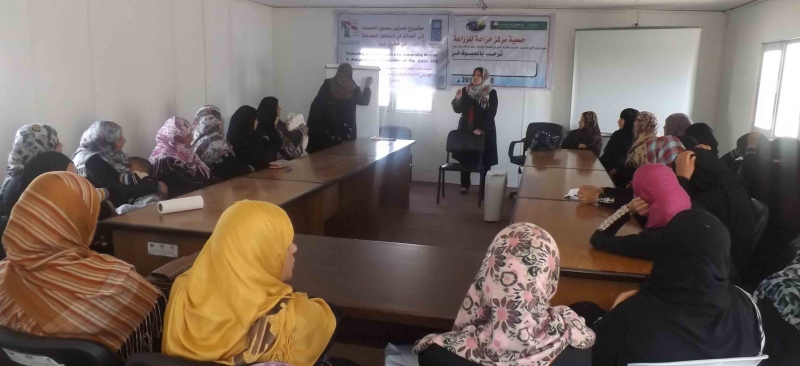
Association has implemented two workshops on personal status law in cooperation with the Center for Women's Affairs-Gaza
Association has implemented two workshops on personal status law in cooperation with the Center for Women's Affairs-Gaza , noted that workshops aimed at women and young women, and a trained explained. Najwa Awadallah importance for women to know the law of personal status with respect to legal rights and duties guaranteed by Palestinian law for women, and touched upon the materials which specializes in marriage and the rights of the wife and the mechanics of access rights. It is worth mentioning that the first workshop lasted from nine o'clock until eleven pm and the second from eleven to one in the afternoon and in the presence of about 50 women and young, and at the end of the meeting, open discussion and consultations by trained and attendees
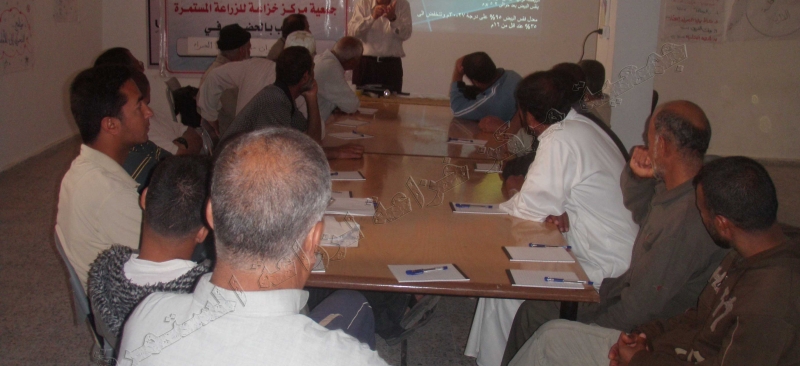
The association implemented and in cooperation with the (FAO) workshop on the palm weevil
the association implemented and in cooperation with the Food and Agriculture Organization (FAO) workshop on the palm weevil, which spread during the previous period in the areas of the Gaza Strip, where the workshop focused on the risks posed by the spread of this scourge, which can exterminate the palm trees and it is called AIDS Palm also said the coach. The topics of the workshop focused on the emergence of palm weevil and insect habitat and essential for their growth phase and the nature of damages and methods of prevention, and focused trainer to the means that must be taken toprevent the arrival of this pest to non-infected trees. The workshop lasted for two days Tuesday, Wednesday approvers 24-25/05/2012m, and was attended by more than 25 farms from palm growers in the eastern region of the province of Khan Younis
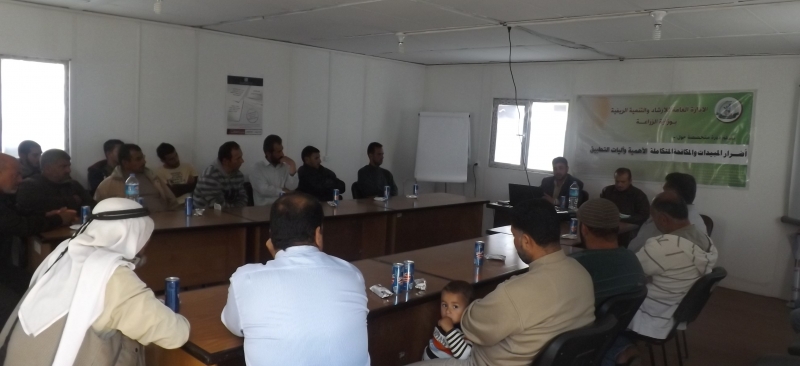
Implementing a workshop about the damage pesticides and integrated pest management in collaboration with the Ministry of Agriculture.
The association and cooperation with the Ministry of Agriculture has implemented a workshop on pesticide damage and IPM. Where he attended a number of farmers interested in agriculture safe and deal with the topic damage pesticides and etiology and health damage resulting from use of pesticides, as touched as well as to damage vital and soil from use of pesticides and its negative impact on production and economy personal and public for farmers, which occur by Engineer Munir Serdah, also touched on later E. Hussam Abu Saada on IPM which control methods of physical and energetic and other ways to help and explain in detail the possibility of alternatives available for the use of pesticides and the roads safe for combat, finally open discussion in front of an audience of farmers and engineers to answer their questions and discussion. The workshop was held and Association Hall in the presence of about 20 farmers from the area of Khuza'a.
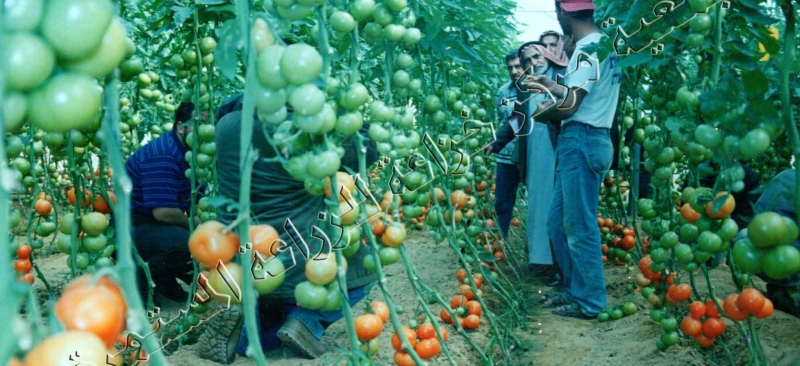
the Association got grant from the MA`AN development center to implement Project 'encourage organic farming in the gardens common for rural households,'
the Association got grant from the MA`AN development center to implement Project 'encourage organic farming in the gardens common for rural households,' The Association got grant from the MA`AN development center through the project to strengthen food security through capacity and funded by the Australian Government and the port through the MA`AN development center in partnership with APHIDA Australian project 'to encourage organic farming in the gardens common for rural households,' The project fully compatible with the vision of the Association and aimed to reach out to clean agriculture in the Palestinian society in line with the culture of permaculture pursued by the Association and publishing philosophy in Palestinian society. The project extends to 4 months and targeting 102 families benefiting protected garden from MA`AN Center.



